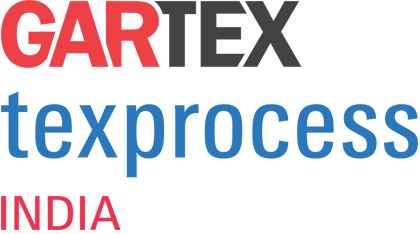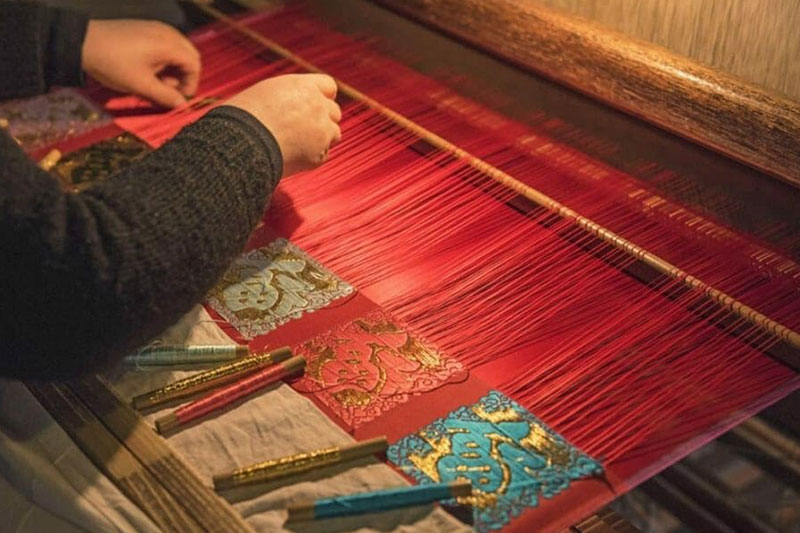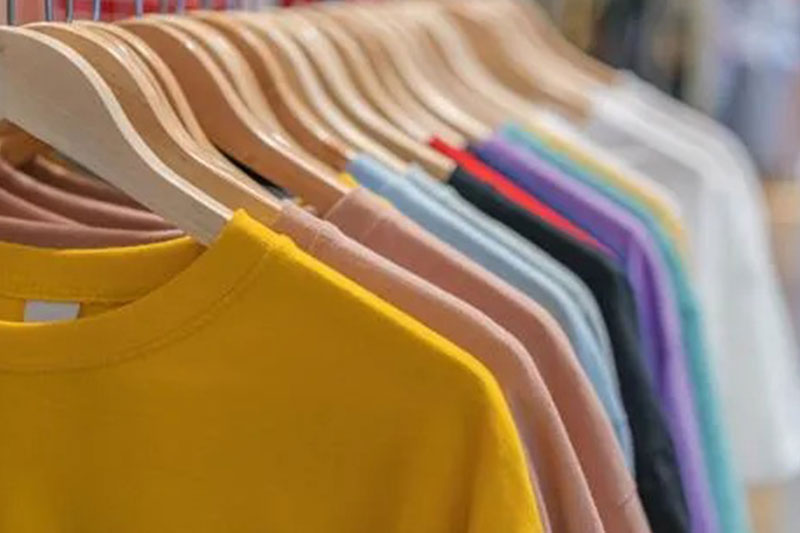Future of the Textile Machinery Industry and Emerging Trends

Textile machinery has been continuously modified and improved over the years to make it more flexible and appropriate for use with various materials while remaining sustainable. The collaboration between textile manufacturers and textile technology suppliers has led to the emergence of numerous new products. The innovative thinking and integration of both industries result in unique textile goods and applications.
The evolution of textile technology (Industry 4.0)
The post-industrial period saw constant development and invention in textile materials, equipment, and techniques. Significant advancements in basic supplies, such as the production of polyamides, polyester, and polyacrylonitrile, as well as advances in equipment, such as water-jet weaving looms and open-end spinning machines, occurred around the middle of the 20th century. The requirement for blended and extremely diverse value chains has grown with customer demand. The Fourth Industrial Revolution transformed sectors by bringing customized and adaptable manufacturing technologies. The expansion of the textile industry and the fast growth in the use of advanced technologies led major market participants to engage in research and development initiatives to create revolutionary textile equipment, shifting their emphasis to increasing product diversity.
Growth in the textile technology market
Textile industry 4.0 allows sophisticated interconnected products to operate as the technical foundation for the incorporation of new operation concepts in textiles.
Smart Factory / Automation
Modern smart machinery allows adaptability, resource efficiency, intelligent maintenance, autonomous logistics, and client and company integration in order to achieve and keep quality output standards and implement planned service. With increased knowledge of bots and automation, the textile industry is transitioning to “Auto” or “Semi-Auto” mode, reducing reliance on manual labor. With the advent of automation, the garment industry has changed; today, technologies such as customizable autonomous handling devices, cutting tables with automated unloading, intelligent transit systems, 3D garment design, and so on are used globally.
Sustainability
Sustainable textile refers to a manufacturing method that is environmentally friendly, which means that all the components and procedures, inputs, and products are safe and effective for people and the ecosystem at all phases of the life cycle. The production and manufacturing of sustainable fabrics derived from green or recycled sources not only helps to reduce negative environmental effects but also helps millions of laborers make a reasonable wage and work in safe circumstances. Sustainability is concerned with increasing resource productivity, co-efficiency, cost efficiency, client happiness, company image, and environmental conditions, among other things.
Nanotechnology
By changing the surfaces of fibers and using grafting materials, multipurpose, sensitive, and flexible fibers can be created. Nanotech may provide anti-static, anti-wrinkle, and stain resistance to fibers without sacrificing their comfort or elasticity. The sophisticated technology enables the development of associated apparel that can detect and react to external cues via electrical, color, or physiological impulses.
Digital Printing
The digital textile printing method uses digital ink-jet printing technology to quickly and precisely print colorful patterns on a variety of fabrics. The increasing demand for digital textile printing technology and sustainable printing in the garment industry is anticipated to boost output demand. Digital textile printing is regarded as the “next generation” of the textile industry, as opposed to traditional fabric printing. With fabric printing turning digital, many textile businesses are investing in digital printing technology, as it is the most promising printing technique.
Upcoming Industry Trends
The rising fast-fashion trend is driving up demand for innovative textile machinery used to create modern clothing with unique fabrics, patterns, styles, colors, and designs. The growing demand for textile recycling as a result of rising environmental worries, as well as increased knowledge among people about the negative effect of waste combustion, is driving the growth and development of the Textile Machinery Market.
Upcoming Garment Exhibition
New textile products and applications that provide customizable support to achieve customer satisfaction are being developed continuously by emerging companies.
It can be a hassle to keep up with the latest emerging trends and technology. The pandemic’s profound and lasting impact on everyday life has brought ideas such as sustainability, rotational production, and automation to the forefront of developers’ investments and actions.
An effective way to keep up with future growth and technological advancements in the industry is to attend Textile and Garment exhibitions like the Gartex Texprocess India Trade Show. Featuring the latest tech and innovative ideas, this upcoming textile and garment exhibition in Mumbai caters to all industry professionals looking to get their hands on new machinery or showcase their sustainable ideas. Analyze, assess, and explore all the latest trends in the textile industry at the Textile Expo.
India’s Leading Textile and Garment Exhibition
Textile widespread digitization makes use of sophisticated tools centered on IoT, AI, data analytics, and 3D technologies. These technologies not only increase manufacturing efficiency but also adhere to environmental standards. Because apparel/textile manufacturing is a highly competitive industry, companies are focusing more on new and innovative advertising ideas. Immersive and industry-niche exhibitions help accomplish this by providing industry professionals with a better grasp of the latest technology, market trends, and unique insights. Gartex Texprocess India is an integrated Fabric to Finish Garment and Textiles exhibit featuring exhibitors and visitors from all around the world, coming together at this networking event. The Upcoming Textile fair is being held at Jio World Convention Centre, Mumbai from 11th – 13th May 2023. This upcoming garment and textile trade show will showcase Garment Machinery, Embroidery Machines, Digital Textile Printing Technology, Laundry Equipment & Much More. The textile expo in Mumbai will serve as the ultimate avenue for providing high-quality products and a one-stop marketing and sourcing platform, incorporating Denim Show and featuring Screen Print India and Fabric & Trims Show.
Conclusion
Numerous innovative ideas in the textile industry have presently and previously altered the way garments are manufactured. Many manufacturers and brands have embraced the fast-paced fashion industry and are working towards developing innovative yet sustainable machines and technology. These R&D efforts have greatly decreased the need for hazardous practices that have harmed textile workers, and they have discovered novel resources from which to develop more sustainable apparel. With the emergence of more complex textile technologies, textiles are already being used in applications that would have been inconceivable even a decade ago, ranging from medical fabrics to quick pleating machines. Many of these uses will be improved shortly, as will the development of even better-designed products, technology, and clothing.
More News
How to Identify Authentic Indian Handloom Products?
Indian handloom products are a timeless testament to the country’s rich cultural heritage and craftsmanship. From luxurious Banarasi silks to timeless Khadi…View More
How to Start a Garment Manufacturing Business in India?
India’s textile and garment industry has always been a major contributor to the country’s economy, offering vast opportunities for entrepreneurs. With the…View More
How to Reduce Textile Waste in Garment Production?
Textile waste has become a growing concern in the garment industry, with significant environmental and economic impacts. As businesses and consumers become…View More
The Digital Transformation of Textile Production
The shift from traditional textile printing to digital fabric printing has unlocked a world of new possibilities for producers and designers alike.…View More
Recap of India’s Garment Industry in 2024: A Year of Growth and Transformation
As 2025 begins, India’s garment industry has experienced significant growth, overcoming challenges and embracing new opportunities in 2024. From technological advancements to…View More
Download
Register Now
Recent Posts
Show Countdown
DELHI
Bharat Mandapam (Pragati Maidan), New Delhi, India
- days
- Hours
- Minutes
- Seconds
MUMBAI
Jio World Convention Centre, Bandra Kurla Complex, Mumbai






